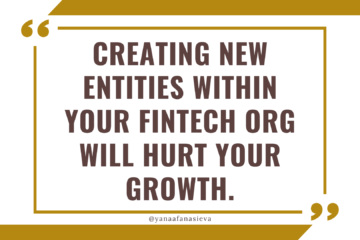SEC Crusade Against Staking and Stablecoins… What Can We Learn From BUSD and Kraken Enforcements?
The US regulators have recently gone to the mattresses against Coinbase, Paxos, Binance, staking, and stablecoins (…) and issued a number of enforcement. Let’s unpack it, shall we?
Why do the US regulators have an issue with staking activities?
Staking activities and “staking” or “earn” programs could mean many different activities. Today, I’d like to differentiate staking related to validator activities and crypto lending (currently it almost disappeared, but previously was often referred to as staking).
- Proof of stake-based blockchains is kept running by validator nodes
- Validator nodes earn rewards for keeping the network running
- Staking can be custodial and non-custodial, depending on who controls the tokens of the participants
The main issue with crypto lending is the breach of customer funds safeguarding expectations (it was never a hard requirement in the US and in most other countries in the world, but after the collapse of Terra, Luna, FTX, BlockFi & Co, it finally became obvious that crypto funds segregation must be a fundamental requirement).
KRAKEN staking program only related to activities of them as a validator. It was a custodial program, meaning the tokens of use remained with Kraken, and the safeguarding requirement was fully ensured. Their “deficiencies” with the staking program were:
- Aggressive marketing messages – promising “fixed interest rates”, “earnings”, and “deposits”. A safer (Coinbase) approach would be to call the program “staking” and grant “rewards” and clearly explain the software-type pass-through nature of the rewards as an income generated for the validator’s activities.
- Mixing own staking pool with the customer’s staking pool of coins. 🪙
- Creating the liquidity pool to make the management of joining and exiting the program easier and reduce penalties and bonding period.
- Disconnecting the calculation of the rewards due to customers from the underlying validation activity.
Summary: Kraken deployed substantial treasury and program management activities on top of their validator activities and positioned this program as an investment opportunity for customers rather than software activity.
Why the SEC force Paxos and Binance to stop BUSD issuance?
- Paxos (US financial institution) is the issuer of the BUSD stablecoin.
- When Paxos initially issues BUSD, it does so with strict requirements with 1:1 fiat backing, however, when BUSDs move into the Binance platform and especially when they are converted and “bridged” or “wrapped” by Binance from ETH into the Binance own blockchain, the transparent backing of the BUSD and their convertibility is lost.
- SEC told Paxos that their main breach is poor oversight over their counterparty (Binance) and how this counterparty is using the asset issued by Paxos, mainly around the lack of transparent 1:1 backing of the BUSDs to the USD-denominated liquid assets.
Does it mean that other stablecoins are “safe”? 🛡️
The term “stablecoin” has been applied extremely loosely. I have personally seen it referring to single-currency or multi-currency pegged digital assets, to tokenized gold and diamond products, to hybrid digital products with embedded algorithmic price “stabilization” logic, and to everything in between.
Here is my take on how regulators will likely treat stablecoins in the near future:
- The most recent US crypto bill draft provides that only US-licensed banks or similar financial institutions can issue USD-denominated stablecoins.
- Many of the EU/UK/EEA centrally issued single currency-pegged stablecoins will likely be categorized as e-money if they are 1:1 backed and redeemable; and will likely be forbidden as too risky if they are not 1:1 backed and non-redeemable.
- Multi-currency or multi-asset backed centrally issued stablecoins in the EU and US will likely be treated as securities/derivatives and as a result issuing and offering them will require a MIFID/brokerage/securities dealer license.
Do you agree? 🤔
Enjoy listening to podcasts instead of reading? – Tune in to this episode here!


